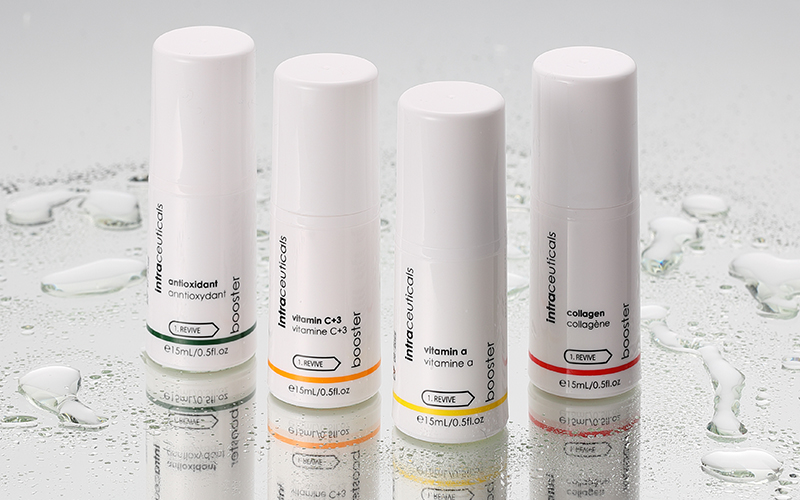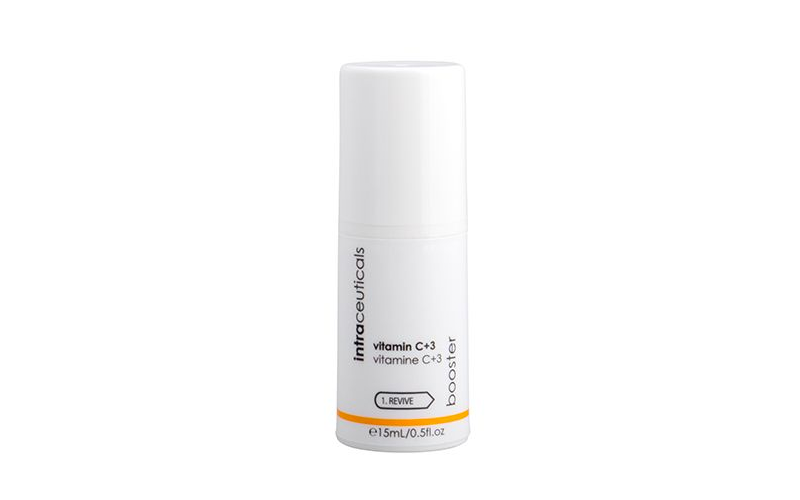In the quest for radiant, youthful skin, one potent ingredient stands out among the rest: Vitamin C. The benefits of Vitamin C is vast. It is an antioxidant, naturally present in our skin, plays a crucial role in combating the effects of aging, sun damage, and environmental stressors. However, as we age, our skin’s natural reservoir of Vitamin C diminishes, leaving it vulnerable to various concerns such as hyperpigmentation, inflammation, and loss of elasticity.
While consuming Vitamin C-rich foods is beneficial for overall health, its impact on skin health is limited. This is where topical Vitamin C steals the spotlight. By incorporating Vitamin C into your skincare routine, you unlock a myriad of benefits that can transform the look and feel of your skin.
See also: Get Party-Ready With Intraceuticals’ Oxygen Magic

The Benefits of Vitamin C
Vitamin C offers a plethora of advantages for your skin, making it a must-have in your skincare arsenal. Here’s how it works wonders:
- Brightens and Evens Out Skin Tone: Vitamin C has the remarkable ability to fade hyperpigmentation, leaving your skin with a luminous, even complexion.
- Reduces Redness and Inflammation: Say goodbye to blotchy, irritated skin. Vitamin C calms inflammation, leaving your skin looking calm and radiant.
- Neutralizes Free Radical Damage: Environmental aggressors like pollution and UV rays generate free radicals that wreak havoc on our skin. Vitamin C swoops in to neutralize these free radicals, protecting your skin from oxidative stress.
- Promotes Collagen Production: Collagen is the building block of youthful skin. Vitamin C stimulates collagen synthesis, leading to firmer, more elastic skin.
- Shields Against UV-induced Damage: While sunscreen is non-negotiable for sun protection, Vitamin C acts as an additional barrier against UV-induced damage, minimizing the risk of premature aging.
The result? Smooth, resilient skin that glows with vitality.

Topical vs. Consumable Vitamin C
Distinguishing between topical and consumable Vitamin C sheds light on how each form interacts with the skin. Consumable Vitamin C, obtained through diet or supplements, primarily benefits internal health. However, topical application offers direct access to the skin, allowing Vitamin C to penetrate deeper layers where it exerts its rejuvenating effects.
Studies suggest that topical application, especially in the form of a 20% Vitamin C solution, yields optimal absorption and efficacy. While the research on Vitamin C’s skincare benefits is ongoing, the consensus leans towards the effectiveness of topical application for skin health and protection.
Serums enriched with Vitamin C offer a convenient and effective way to incorporate this powerhouse ingredient into your daily regimen. Brands like Intraceuticals offer a an excellent Vitamin-C infused serum which contains powerful antioxidant ingredients. Whether you’re combating signs of aging or seeking to enhance your skin’s radiance, there’s a Vitamin C serum suited to your goals.
For optimal results, apply Vitamin C serums in the morning to harness its free-radical-fighting prowess and safeguard your skin against sun damage. A few drops of serum are sufficient for the entire face, ensuring thorough coverage without overwhelming the skin.
See also: 7 Hydrating Serums To Invest In Now
Pairing with Complementary Ingredients
To maximize Vitamin C’s benefits, consider pairing it with complementary skincare ingredients. Antioxidants like Vitamin E and ferulic acid enhance Vitamin C’s efficacy against UV damage, while hyaluronic acid and niacinamide soothe and hydrate the skin.
However, exercise caution when combining Vitamin C with certain active ingredients. Avoid mixing Vitamin C with alpha-hydroxy acids (AHAs) or beta-hydroxy acids (BHAs), as their acidic nature may compromise Vitamin C’s stability and potency. Similarly, refrain from using Vitamin C simultaneously with benzoyl peroxide or retinol to prevent potential interactions that could diminish its effectiveness.




